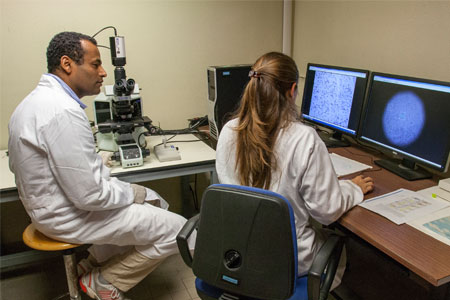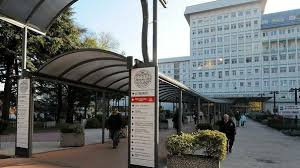- Autori:
-
Campa, Daniele; Obazee, Ofure; Pastore, Manuela; Panzuto, Francesco; Liço, Valbona; Greenhalf, William; Katzke, Verena; Tavano, Francesca; Costello, Eithne; Corbo, Vincenzo; Talar-Wojnarowska, Renata; Strobel, Oliver; Zambon, Carlo Federico; Neoptolemos, John P; Zerboni, Giulia; Kaaks, Rudolf; Key, Timothy J; Lombardo, Carlo; Jamroziak, Krzysztof; Gioffreda, Domenica; Hackert, Thilo; Khaw, Kay-Tee; Landi, Stefano; Milanetto, Anna Caterina; Landoni, Luca; Lawlor, Rita T; Bambi, Franco; Pirozzi, Felice; Basso, Daniela; Pasquali, Claudio; Capurso, Gabriele; Canzian, Federico
- Titolo:
-
Lack of Association for Reported Endocrine Pancreatic Cancer Risk Loci in the PANDoRA Consortium
- Anno:
-
2017
- Tipologia prodotto:
-
Articolo in Rivista
- Tipologia ANVUR:
- Articolo su rivista
- Lingua:
-
Inglese
- Referee:
-
No
- Nome rivista:
- Cancer Epidemiology Biomarkers & Prevention
- ISSN Rivista:
- 1055-9965
- N° Volume:
-
26
- Numero o Fascicolo:
-
8
- Intervallo pagine:
-
1349-1351-1351
- Parole chiave:
-
neuroendocrine tumors, epidemiology
- Breve descrizione dei contenuti:
- Background:Pancreatic neuroendocrine tumors (PNETs) are rare neoplasms for which very little is known about either environmental or genetic risk factors. Only a handful of association studies have been performed so far, suggesting a small number of risk loci.Methods:To replicate the best findings, we have selected 16 SNPs suggested in previous studies to be relevant in PNET etiogenesis. We genotyped the selected SNPs (rs16944, rs1052536, rs1059293, rs1136410, rs1143634, rs2069762, rs2236302, rs2387632, rs3212961, rs3734299, rs3803258, rs4962081, rs7234941, rs7243091, rs12957119, and rs1800629) in 344 PNET sporadic cases and 2,721 controls in the context of the PANcreatic Disease ReseArch (PANDoRA) consortium.Results:After correction for multiple testing, we did not observe any statistically significant association between the SNPs and PNET risk. We also used three online bioinformatic tools (HaploReg, RegulomeDB, and GTEx) to predict a possible functional role of the SNPs, but we did not observe any clear indication.Conclusions:None of the selected SNPs were convincingly associated with PNET risk in the PANDoRA consortium.Impact:We can exclude a major role of the selected polymorphisms in PNET etiology, and this highlights the need for replication of epidemiologic findings in independent populations, especially in rare diseases such as PNETs.Cancer Epidemiol Biomarkers Prev; 26(8); 1349-51. ©2017 AACR.
- Id prodotto:
-
101359
- Handle IRIS:
-
11562/974889
- ultima modifica:
-
16 novembre 2022
- Citazione bibliografica:
-
Campa, Daniele; Obazee, Ofure; Pastore, Manuela; Panzuto, Francesco; Liço, Valbona; Greenhalf, William; Katzke, Verena; Tavano, Francesca; Costello, Eithne; Corbo, Vincenzo; Talar-Wojnarowska, Renata; Strobel, Oliver; Zambon, Carlo Federico; Neoptolemos, John P; Zerboni, Giulia; Kaaks, Rudolf; Key, Timothy J; Lombardo, Carlo; Jamroziak, Krzysztof; Gioffreda, Domenica; Hackert, Thilo; Khaw, Kay-Tee; Landi, Stefano; Milanetto, Anna Caterina; Landoni, Luca; Lawlor, Rita T; Bambi, Franco; Pirozzi, Felice; Basso, Daniela; Pasquali, Claudio; Capurso, Gabriele; Canzian, Federico,
Lack of Association for Reported Endocrine Pancreatic Cancer Risk Loci in the PANDoRA Consortium
«Cancer Epidemiology Biomarkers & Prevention»
, vol.
26
, n.
8
,
2017
,
pp. 1349-1351-1351
Consulta la scheda completa presente nel
repository istituzionale della Ricerca di Ateneo 








